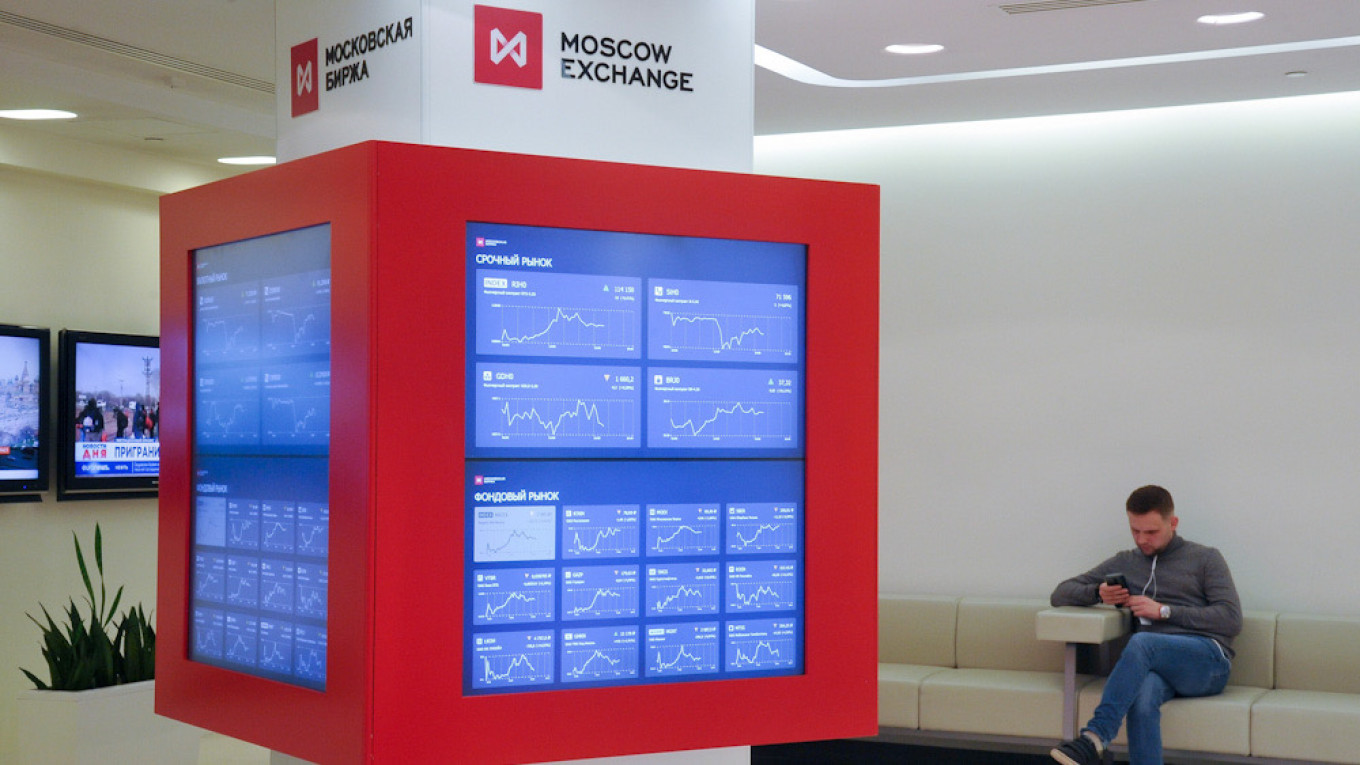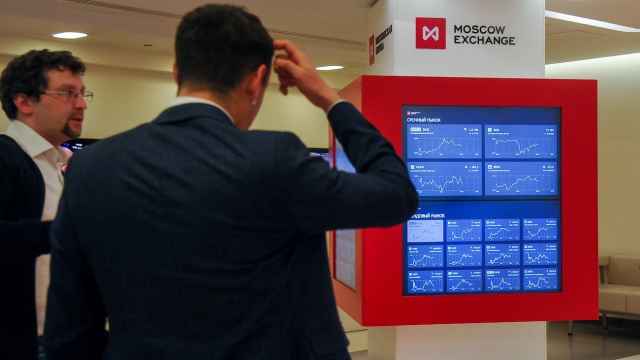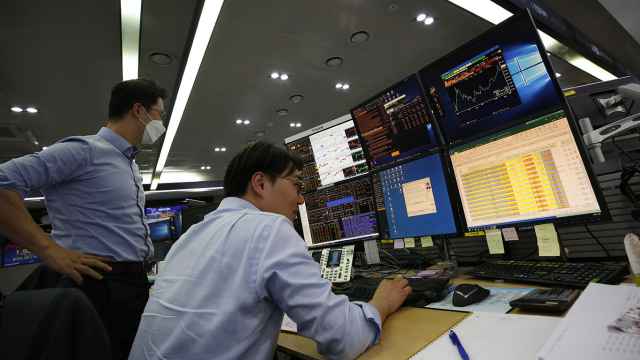Market analysts believe a possible stabilization of relations between the U.S. and Russia could be a boon to Russia’s financial markets after months of turbulence and geopolitical shocks.
The Russian ruble briefly climbed to its strongest level in more than a year against the U.S. dollar ahead of last week’s summit between presidents Joe Biden and Vladimir Putin, and the local stock market is trading at an all-time high.
But veteran analysts say Wednesday’s incident in the Black Sea in which Russia said it fired warning shots at a British vessel sailing close to the annexed Crimean peninsula demonstrates how rapidly any détente with the West could fall apart.
“The return to constructive talks on key global issues, such as climate change and nuclear arms control, is a positive sign. It could pave the way for a further reduction in the geopolitical risk premia embedded in Russian asset prices,” Oxford Economics’ Tatiana Orlova wrote in a research note.
While the summit in Geneva did not produce any policy breakthroughs, traders see the professional and pragmatic nature of the relationship being struck up between the two men as a positive sign which could usher in a period of calm and stability for Russian markets.
“The geopolitical factor will take a back seat for some time, which, in the light of previous years, is probably already a positive development for ruble assets,” said Dmitry Babin, market analyst at Russian brokerage BCS Investments.
The ruble, Russian companies and the overall Russian stock market have for years traded with what analysts call the “geopolitical premium” — a discount on what might be considered their underlying value to account for the possibility of fresh sanctions against Russia or further deterioration in relations between the Kremlin and the West which knocks the Russian economy.
In terms of price-to-earnings ratios — a widely-used metric to assess the intrinsic value of companies — Russia has the most under-valued stock market of all emerging economies, according to T.S. Lombard calculations.
A more stable relationship could see that discount factor reduced, some analysts believe.
T.S. Lombard’s Christopher Granville said the fact that expectations ahead of Geneva were so low, but that Biden and Putin still agreed to open new lines of communication could itself boost Russian markets.
“The very incompatibility of the two sides’ ultimate goals in getting into this new détente will have the paradoxical effect of disposing both of them to keep the show on the road — which, from the investment standpoint, is the key driver.”
Both T.S. Lombard and Oxford Economics upgraded their view on Russian markets to “overweight” in recent weeks — an investment score which signifies optimism about potential returns.
Even the likely imposition of another package of U.S. sanctions over the poisoning of leading Kremlin critic Alexei Navalny is not enough to deter some analysts from their bullish calls on Russia.
“The market doesn’t see any ‘reset’ of relations, but it looks at the normalization quite positively. It’s obvious that some black swans will again appear in the form of new sanctions — but their effect might not be so significant,” Denis Gorev, investment consulting director at Otkritie Bank told The Moscow Times.
French and German plans to boost direct engagement with Putin are also being interpreted positively by the market, Sberbank analyst Andrey Kuznetsov said Thursday. “This would be a welcome development from the standpoint of perceived geopolitical risks and could potentially support Russian assets.”
For others, however, the summit did little to change the fundamental risks of investing in Russia.
“I think investors look at Russia the same as they always have — they see very cheap assets and a very cheap market. But it’s probably always going to stay cheap, so there is still caution, skepticism and an awareness that sentiment in Russia is extremely fickle,” said long-time Russia analyst Julian Rimmer.
“As a consequence, it’s very rare that you see fund managers really committing themselves 100% to Russia — they’re always wary.”
Geopolitical risks — Wednesday’s Russian-British stand-off in the Black Sea, controversy in the EU over French and German attempts to boost engagement with Putin, and looming U.S. sanctions over Navalny — are never far from the surface, he warned.
“These things in Russia can blow up at any time. With Putin in power and this current system of government, Russia is always going to be susceptible to periodic turbulence.”
A Message from The Moscow Times:
Dear readers,
We are facing unprecedented challenges. Russia's Prosecutor General's Office has designated The Moscow Times as an "undesirable" organization, criminalizing our work and putting our staff at risk of prosecution. This follows our earlier unjust labeling as a "foreign agent."
These actions are direct attempts to silence independent journalism in Russia. The authorities claim our work "discredits the decisions of the Russian leadership." We see things differently: we strive to provide accurate, unbiased reporting on Russia.
We, the journalists of The Moscow Times, refuse to be silenced. But to continue our work, we need your help.
Your support, no matter how small, makes a world of difference. If you can, please support us monthly starting from just $2. It's quick to set up, and every contribution makes a significant impact.
By supporting The Moscow Times, you're defending open, independent journalism in the face of repression. Thank you for standing with us.
Remind me later.






